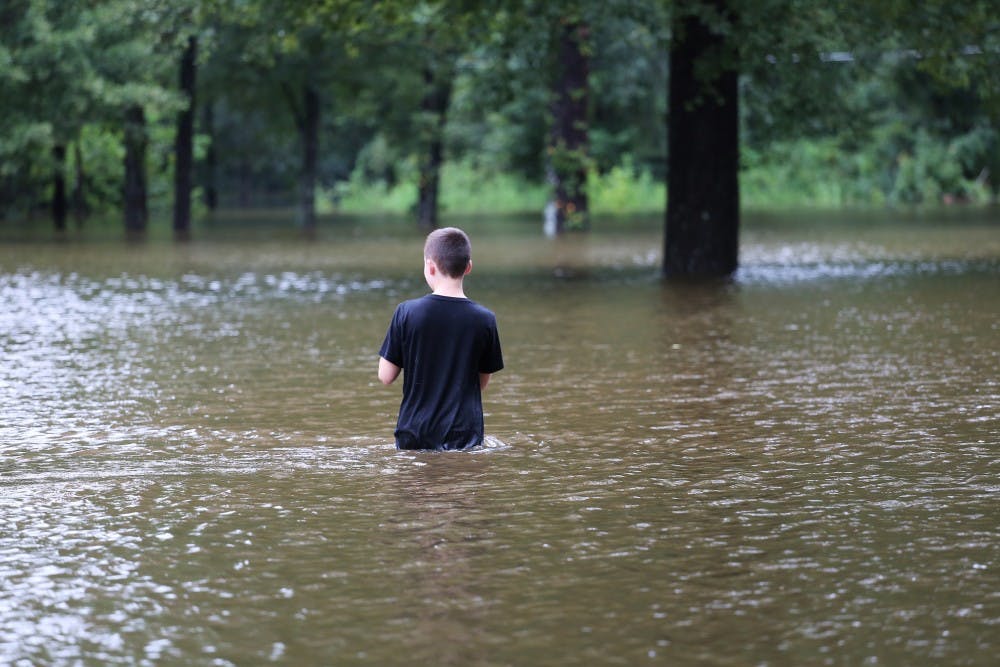
Jill Carlson / CC 2.0
Hurricane Harvey caused $180 billion in damages, which some experts estimate is more than any other natural disaster in United States history. Weeks after the storm, various members of the Penn community are still dealing with its aftermath.
Penn faculty have found ways that communities, particularly those living in cities, can better prepare for a natural disaster of this scale.
Wharton professor Howard Kunreuther has conducted extensive research into how the public and private sectors can mitigate the damage produced by natural disasters. Kunreuther, who is also the co-director of the Wharton Risk Management and Decision Processes Center, said individual biases help explain why cities are consistently underprepared for natural disasters such as Harvey and Irma.
Kunreuther co-wrote a book with Wharton professor Robert Meyer titled, "The Ostrich Paradox: Why We Underprepare for Disasters." It explores why people tend to be short-sighted and overly optimistic in the face of natural disasters.
“We focus on the short run — the idea of thinking for the long run is very hard for any of us to do.” Kunreuther said.
He added that people tend to forget disasters after they happen and resist changes to the status quo.
Looking forward, Kunreuther said people can better prepare for natural disasters by removing insurance subsidies (which obscure the true risk of living in flood-prone areas) and using vouchers to encourage homeowners to mitigate risks. He added that he believes changes in legislation and insurance policy are critical to preventing such extensive damages in the future.
“We have to take action now, rather than waiting and forgetting all that has happened,” he said.
Professors said in the long run, governments also need to think more meaningfully about the role that climate change plays in natural disasters.
“We don’t talk about climate change; we talk about changing weather. I think that is really sad," said Wharton professor Eric Orts, the director of the Initiative for Global Environmental Leadership.
Nikhil Anand, an assistant professor of Anthropology who wrote about urban infrastructure in his book "Hydraulic City," agreed.
“Climate change is not something that is a question or in the future, but something that is changing now” he said.
Anand added that flood prevention measures also need to take into account the history of race and class, as zoning laws in the past have often put marginalized communities in harm’s way.
Rather than build temporary stopgap measures, such as dykes and river walls, Anand said that city governments should start looking for more permanent solutions.
“We must move from thinking about 'if' to 'when,'” Anand said.
Yet, while the link between climate change and natural disasters seems clear to these professors, various members of the federal government have refrained from raising the issue climate change in the wake of Hurricanes Harvey and Irma.
Scott Pruitt, the administrator of the Environmental Protection Agency, said on Sept. 11 that it is “insensitive” to raise the question of climate change in the immediate aftermath of deadly storms.
“I think that’s poppycock,” Orts said.
The Daily Pennsylvanian is an independent, student-run newspaper. Please consider making a donation to support the coverage that shapes the University. Your generosity ensures a future of strong journalism at Penn.
Donate






